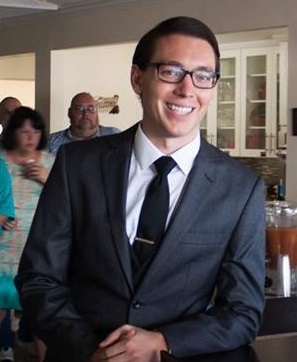University of Arkansas graduate student Malachi Willis received a grant from Indiana University to support his research project that will provide information on how college students give consent to sexual activity.
Willis hopes that, ultimately, a better understanding about how students communicate their consent for sex will lead to fewer incidents of sexual assault. He will finish collecting data before the spring semester wraps up in May.
It can be difficult to get volunteers to participate in university-based research projects, even on an intriguing topic such as sex and especially on a project that requires a daily response for 30 days. So, Willis is using the grant from Indiana University to pay students for their participation.
He received the 2016-2017 Doug Kirby Adolescent Sexual Health Grant from the Rural Center for AIDS/STD Prevention at Indiana University.
Willis uses a free iPhone app to send students a daily questionnaire with the same five questions about their sexual activity in the preceding 24 hours. They are asked to respond immediately each day.
"I wanted to assess at the moment how they were feeling," Willis said about the project design. "Most sex research is done retrospectively, but this captures information shortly after the behavior happens."
Based on their responses to some of the initial questions, students are asked to elaborate on their answers. At the end of the 30 days, students decide whether to release the data to Willis. He will wait until all the data is in to begin analyzing it. In addition to looking at variability among students' consent communication, he wants to see whether individual students' perceptions about communication change during the 30-day study period.
One-hundred students are participating in the study. Eligibility criteria were simple, Willis explained; students had to be between 18 and 24 years old, have an iPhone and be sexually active, which was based on whether they took part in at least two of four sexual behaviors on at least three days in the past week. About half of the students who expressed interest in participating did not qualify, he said, and the participant group is about 75 percent women.
Willis is in his first year of the doctoral program in community health promotion in the College of Education and Health Professions. He received a Distinguished Academy Fellowship from the U of A.
He received two master's degrees, one in forensic psychology from Marymount University and one in experimental psychology from the University of North Carolina. He also completed an internship with the National Center for Missing and Exploited Children before he began looking for a doctoral program. He had become interested in sexuality of college students and found Kristen Jozkowski, University of Arkansas assistant professor who was researching questions in which he was interested. Jozkowski co-directs the Sexuality Education and Consent Studies Lab at the U of A.
He did not find any research articles about previous research that is similar to his project.
"I believe the results will be a good contribution to the field," said Willis, who has about a dozen research projects going in stages from planning the projects to submitting articles about results for possible publication.
Topics
Contacts
Heidi S. Wells, director of communications
College of Education and Health Professions
479-575-3138, heidisw@uark.edu
